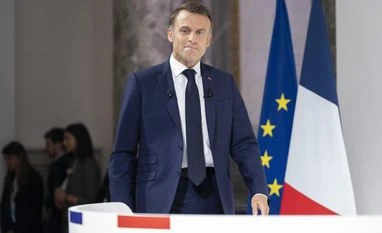France is poised for a high-stakes week of political campaigning starting Monday, following the far-right National Rally’s dominant performance in the first round of legislative elections. This unexpected surge has delivered a significant blow to President Emmanuel Macron and has mobilised an unusually high number of voters.
A nation decides
Voters are electing representatives for the 577-seat National Assembly, the country’s lower and more influential house of Parliament. The second round of voting, scheduled for July 7, could reshape France’s political landscape. Should a new majority opposed to Macron emerge, he might have to appoint a political adversary as prime minister, significantly changing France’s domestic and foreign policies. This scenario becomes particularly dramatic if Jordan Bardella, the 28-year-old leader of the National Rally, assumes the role.
If no clear majority is established, France could face prolonged political deadlock. Macron, who has ruled out resignation, cannot call new legislative elections for another year, adding to the potential for instability.
Historic surge for the far-right
On Sunday, the National Rally made history by leading a nationwide legislative election for the first time with approximately 34 per cent of the vote. The New Popular Front, a coalition of left-wing parties, secured around 29 per cent, while Macron’s centrist Renaissance party and its allies garnered about 22 per cent. Mainstream conservatives lagged with roughly 10 per cent.
Key takeaways from the first round of election in France
High voter turnout
Unlike previous legislative elections, which usually see lower participation rates, this snap election called by Macron drew a voter turnout of over 65 per cent, a significant increase from 47.5 per cent in 2022. This jump reflects the high stakes and the belief among voters that their ballots could decisively impact Macron’s presidency.
Unpredictable outcomes
For an absolute majority, a party needs 289 seats. Projections suggest the National Rally could win between 240 and 310 seats, while the New Popular Front may get 150 to 200 seats. Macron’s Renaissance party is projected to win between 70 and 120 seats. However, predicting second-round outcomes based on the first round is challenging due to France’s complex electoral system, which often necessitates second-round runoffs.
Also Read
Complex runoffs
The runoffs could feature multiple candidates in some districts, further complicating predictions. This year, an increase in voter participation has led to projections of over 200 three-way races, compared to only eight in 2022. Many parties, especially on the left, plan to withdraw third-place candidates to prevent far-right victories, though some of Macron’s allies oppose withdrawing in cases that might benefit the hard-left France Unbowed party.
Potential for far-right governance or gridlock
The most likely outcomes are either a National Rally-led government or political gridlock. If the National Rally secures an absolute majority, Macron will have to appoint Bardella as prime minister, leading to a far-right domestic policy agenda. In foreign policy, this could result in significant clashes, particularly concerning France’s role in the European Union and its support for Ukraine. If the National Rally falls short, Macron could face an unmanageable Parliament, with his centrist coalition squeezed between large right and left blocs.
A shifting political landscape in France
The National Rally’s success signifies its transition from the political fringes to mainstream acceptance, nearly doubling its vote share from 2022. A study by the Ipsos polling institute highlighted the party’s expanded voter base, which now includes significant support from retirees, women, young people, higher-income voters, and urban dwellers.
As France heads into a critical week of campaigning, the results of the upcoming second round will be pivotal. The country stands on the brink of either a far-right government or a prolonged period of political uncertainty. The next few days will be crucial in determining the future direction of French politics.
(With agency input)
)